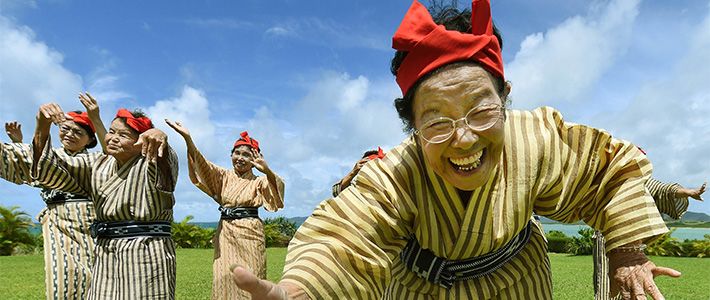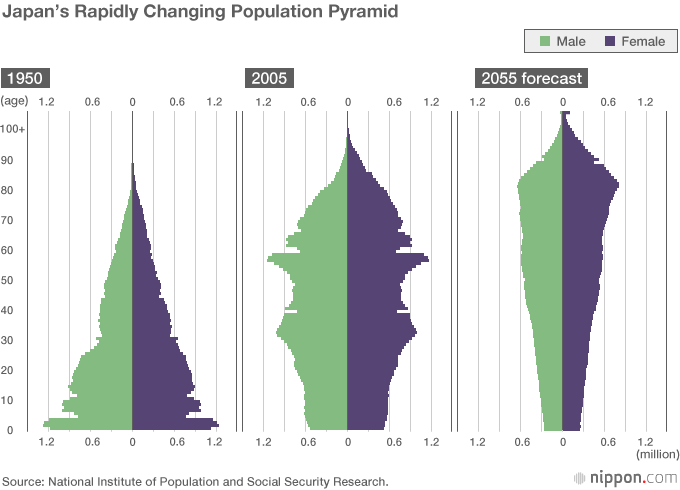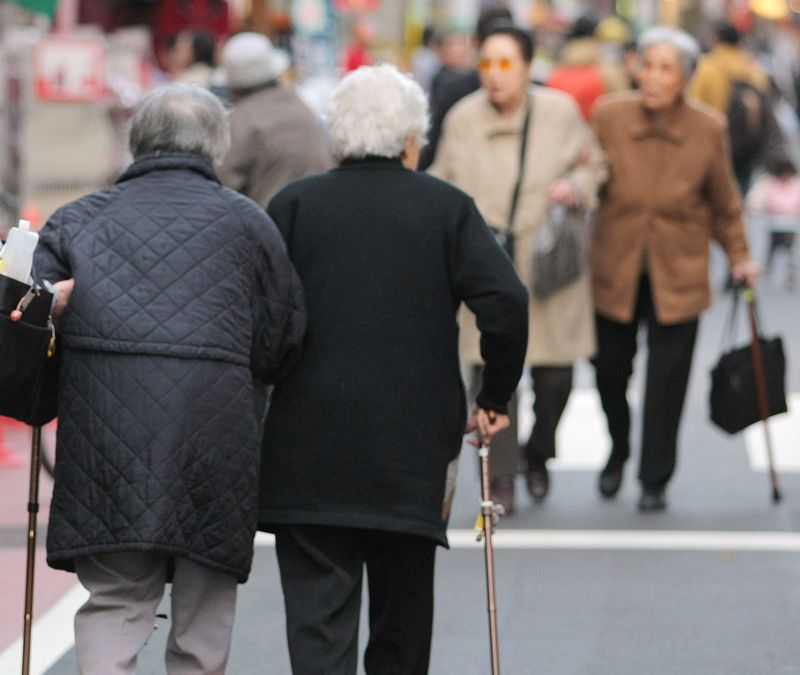
Aging in Japan and Across Asia
Japan at the Forefront of Super-Aging Societies
Society- English
- 日本語
- 简体字
- 繁體字
- Français
- Español
- العربية
- Русский
The Century of Aging
The world’s population is now in a state of flux so fierce that it likely has no parallel in history. The first driver of these changes is the differences in population across the North-South divide, with populations in the South continuing to grow while they shrink in the North. Meanwhile, refugees and immigrants make their way from South to North in great numbers, causing a range of social frictions.
The second driver is the rural-to-urban population shift. The dramatic hollowing of rural areas is conspicuous worldwide, and has led to an urban population that exceeds the rural population for the first time in history.
And the third driver is change in the population structure itself. Most notably, the ratio of elderly is increasing and that of young people is decreasing.
The aging of populations started attracting attention in developed countries in the 1990s. The phenomenon has been especially striking in Japan, where the ratio of people aged 65 years or over to the total population reached 26.7% in 2015. The figure is expected to rise to about 40% by around 2060. Internationally, between now and around 2040, the ratio of elderly will surpass the 30% mark first of all in European countries, such as Germany, Italy, and Spain, and a little later in such Asian countries as South Korea, Thailand, and Singapore. Worldwide the number of people aged 65 or over will roughly double by 2050, making it no exaggeration to describe the twenty-first century as the “century of humanity’s old age.”

Japan’s Coming Super-Aged Society
How is Japan going to change over the coming decade? By 2025, the total population will drop below 120 million. The majority of those born during the immediate postwar baby boom will be at least 75 years old. According to current forecasts, 20% of Japanese nationals will be at least 75 years old and 30% at least 65. In other words, Japan will become a super-aged society with no parallel in history.
Naturally, social security costs for nursing care and medical expenses will rise sharply. In fiscal 2016 the budget for nursing care is ¥10.4 trillion; by fiscal 2025 it is expected to approach ¥20 trillion. The number of people with dementia will likely increase 50% over the present level to exceed 7 million, which would mean 1 in 5 of the population aged 65 and older. There is also concern that Japan will find itself short of 1 million care workers. No doubt there will be calls for increases in taxes and social insurance premiums and a drastic revision of benefits.
However, measures are already being put in place by private and municipal groups to turn these gloomy forecasts around. Japan’s population has had the highest average life expectancy in the world for 20 years now, reaching 83.7 years in 2015, and its healthy life expectancy also tops the global list at 71.1 years for men and 75.6 years for women. Clearly various efforts to promote health and prevent disease are bearing fruit.
 Tokyo's elderly flock to the senior-friendly shopping district of Sugamo. (© Jiji)
Tokyo's elderly flock to the senior-friendly shopping district of Sugamo. (© Jiji)
Japan as an Aging Model for the World
Even when they get old, Japanese people show a strong desire to continue working, and their rate of social participation is high as well. This forward-looking robustness is one of the reasons for the nation’s long life expectancy. More and more activities are being led by healthy senior citizens. Nursing care equipment to support the elderly is growing into an important industry too. As Japan leads the world in aging, it can also serve as a good model for other countries following the same demographic track.
The Sasakawa Peace Foundation launched a research project in 2015 to address the problem of aging in Asia. As part of this project, the SPF will be disseminating both domestic and international information related to aging. For more information on the project, click the link:
(Originally written in Japanese. Banner photo: Members of KBG84—the "Kohamajima Bāchan Gasshōdan" named playfully after girl group AKB48, with a number to match their ages. © AFP/Jiji.)